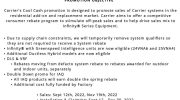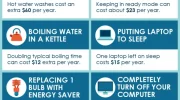
From the Battlefield to the HVAC Industry: Trade Warriors Begin a New Mission
For many veterans returning from service, the transition back to civilian life can be challenging. They are faced with the task of finding a new career and reintegrating into society. However, there is a growing industry that is providing a promising opportunity for these warriors – the HVAC industry.
The HVAC industry, which stands for heating, ventilation, and air conditioning, is a vital sector that keeps our homes and businesses comfortable and safe. It requires skilled professionals who are trained to install, maintain, and repair HVAC systems. This industry offers a stable and fulfilling career path for veterans looking to begin a new mission.
Veterans possess a unique set of skills that make them well-suited for success in the HVAC industry. They are disciplined, detail-oriented, and accustomed to working in high-pressure situations. These attributes translate seamlessly into the trade, where attention to detail and the ability to work under pressure are essential.
Furthermore, veterans bring leadership qualities that can be invaluable in the HVAC industry. Through their military training, they have developed teamwork, communication, and problem-solving skills. These qualities enable them to take on leadership roles and excel in their new careers.
“Our veterans have already proven themselves to be warriors on the battlefield. Now, it’s time for them to become leaders in the HVAC industry. Through the support and training offered to them, they can turn their skills and experience into successful careers that benefit both themselves and their communities.”
Empowering Veterans in the HVAC Industry
With their strong background as warriors on the battlefield, veterans possess valuable skills that can be effectively transferred to various civilian professions. The HVAC industry is one such trade where veterans can begin a new mission and excel in their chosen field.
The HVAC industry, standing for Heating, Ventilation, and Air Conditioning, is a vast and growing sector that offers a range of opportunities for veterans. This industry involves the installation, repair, and maintenance of heating and cooling systems in residential and commercial buildings.
Why HVAC is a Good Fit for Veterans
Veterans often possess key qualities that are highly valuable in the HVAC industry. These include:
- Discipline: Veterans have a strong sense of discipline ingrained in them from their military experience. This attribute is crucial in an industry where following strict guidelines and protocols is essential for the safety and efficiency of the HVAC systems being serviced.
- Problem-solving skills: Veterans are trained to think on their feet and find solutions in high-pressure situations. In the HVAC industry, technicians often encounter complex problems that require quick thinking and troubleshooting skills.
- Teamwork: Military service emphasizes the importance of working as a team. HVAC projects often involve collaboration with other technicians, contractors, and clients. Veterans excel in this aspect as they possess effective communication and teamwork skills.
- Attention to detail: Veterans are trained to pay attention to details and follow instructions meticulously. In the HVAC industry, precision is crucial to ensure the proper installation and functioning of systems, and veterans are well-equipped to handle these tasks.
Supporting Veterans in the HVAC Industry
Recognizing the potential of veterans in the HVAC industry, various organizations and initiatives have been established to support their transition and success in this field. These include:
- Vocational training programs: Many organizations offer specialized vocational training programs that focus on teaching veterans the technical skills required in the HVAC industry. These programs provide hands-on experience and preparation for certifications.
- Mentorship programs: Mentorship programs connect veterans with experienced professionals in the HVAC industry. Through these programs, veterans can learn from their mentors’ knowledge and expertise, enhancing their skills and improving their chances of success.
- Job placement assistance: Job placement services help veterans find employment opportunities in the HVAC industry. These services provide assistance with resume writing, interview preparation, and connecting veterans with potential employers.
Conclusion
The HVAC industry offers a promising career path for veterans, allowing them to utilize their unique skills and experiences gained from their time in service. Veterans can find fulfillment and success in this trade, and with the support and opportunities available, they can seamlessly transition into leaders in the HVAC industry.
Leveraging Military Skills for Success
Transitioning from the military to the civilian workforce can be a daunting task. However, veterans possess a unique set of skills that can be leveraged for success in the HVAC industry.
As warriors on the battlefield, veterans are trained to be resilient, adaptable, and quick-thinking. These qualities are highly valued in the HVAC trade, where technicians often face challenging and complex situations that require problem-solving skills on the spot.
The HVAC industry provides an opportunity for veterans to embark on a new mission, one that involves keeping people comfortable and safe in their homes and businesses. This sense of purpose and service can be highly rewarding for veterans looking to make a meaningful impact in their civilian lives.
One of the key skills military veterans bring to the HVAC industry is teamwork. In the military, teamwork is crucial for accomplishing missions and ensuring the safety of the team. This teamwork mindset translates well to the HVAC field, where technicians often work in teams to complete projects efficiently and effectively.
Veterans also have a strong work ethic instilled in them through their military training. They understand the importance of discipline, dedication, and attention to detail – qualities that are highly valued in the HVAC industry. These traits ensure that the work is done correctly and to the highest standards.
The ability to work under pressure is another skill that veterans bring to the HVAC industry. In high-stress situations, veterans have learned to remain calm, focused, and make decisions quickly. In the HVAC trade, it is not uncommon to encounter emergencies or urgent situations that require immediate action. Veterans are well-equipped to handle these situations and provide solutions efficiently.
Overall, veterans have a unique skill set that can be leveraged for success in the HVAC industry. By harnessing their warrior mindset, teamwork abilities, strong work ethic, and ability to work under pressure, veterans can begin a fulfilling and successful career in the HVAC trade. The HVAC industry provides an excellent opportunity for veterans to transform their skills and experiences from the military into leadership roles in a different industry.
Transitioning from Combat to HVAC
For many veterans, transitioning from the battlefield to a new industry can be a challenging process. However, the HVAC industry offers a unique opportunity for veterans to use their skills and experience in a new trade.
With their background as warriors on the battlefield, veterans bring a level of discipline, problem-solving abilities, and a strong work ethic to the HVAC industry. These qualities are highly valued in an industry that requires attention to detail and the ability to think on your feet.
Starting a new career in HVAC can be a fresh beginning for veterans who are looking to apply their skills in a civilian setting. The industry offers a wide range of career paths and opportunities for growth, from installation and maintenance to sales and management.
One of the key benefits of transitioning to HVAC is the potential for stable employment. The demand for HVAC technicians continues to grow, meaning there are ample job opportunities available. Additionally, veterans may qualify for various government programs that offer financial assistance or training incentives to transition to a career in HVAC.
It’s important for veterans to recognize that while they may be starting from scratch in a new industry, they bring a set of valuable skills that can help them succeed. By leveraging their discipline, teamwork, and problem-solving abilities, veterans can quickly adapt to the challenges of the HVAC industry.
There are also programs and resources available specifically designed to help veterans make the transition to a career in HVAC. These programs offer training, certifications, and networking opportunities that can help veterans kickstart their new journey in the industry.
Overall, transitioning from combat to the HVAC industry is an opportunity for veterans to channel their warrior spirit into a new and fulfilling career. By taking advantage of the resources and opportunities available, veterans can begin their journey towards becoming leaders in the industry.
From Warriors to Leaders in the Field
Transitioning from warriors on the battlefield to leaders in the HVAC industry is a natural progression for veterans looking for a new mission to undertake. The skills and values gained in the military can be easily translated into the trade of HVAC (Heating, Ventilation, and Air Conditioning).
Just as warriors are trained to strategize and execute missions, HVAC technicians must use problem-solving skills and critical thinking to assess, diagnose, and repair heating and cooling systems. Both fields require attention to detail, the ability to work under pressure, and a commitment to teamwork.
The battlefield may be a place of conflict, but the HVAC industry is a place where warriors can begin a new mission of service. By ensuring that homes and buildings have functioning heating and cooling systems, HVAC technicians provide comfort and safety to the people living and working in those spaces.
Leadership is another trait that warriors can bring to the HVAC field. In the military, leadership skills are developed and honed to ensure the success of the team. This same leadership can be applied to managing projects and leading teams of technicians in the HVAC industry.
As veterans train and gain expertise in the HVAC field, they can become leaders not only in technical skills but also in mentorship and guidance. They can share their experiences and knowledge with other technicians, helping to shape the next generation of HVAC professionals.
| Warriors on the Battlefield | ✓ | ✓ | ✓ | ✓ |
| HVAC Technicians | ✓ | ✓ | ✓ | ✓ |
Transitioning from warriors to leaders in the HVAC field is not only possible, but it also allows veterans to continue serving their communities in a new and meaningful way. By leveraging their skills, discipline, and leadership abilities, veterans can make a significant impact in the HVAC industry and inspire others in their new mission.
The Demand for Skilled Veterans
As the HVAC industry continues to grow and evolve, there is a new demand for skilled veterans to join the workforce. These veterans, who were once warriors on the battlefield, are now being sought after for their unique skill sets and leadership qualities.
The HVAC industry, which stands for heating, ventilation, and air conditioning, is a vital part of our everyday lives. From keeping our homes and businesses comfortable to ensuring the safe and efficient operation of essential systems, HVAC professionals play a crucial role in our society.
For many veterans, transitioning into a new industry after their military service can be challenging. However, the HVAC industry offers a unique opportunity for these warriors to begin a new mission and utilize their skills in a different capacity.
Veterans are highly valued in the HVAC industry for several reasons. First and foremost, their training and experience in the military have equipped them with a strong work ethic, attention to detail, and the ability to work under pressure. These attributes are essential in the HVAC field, where precision and quick thinking are often required.
Furthermore, veterans bring a sense of leadership and teamwork to the industry. Many HVAC projects require collaboration between different trades and departments, and veterans are accustomed to working as a cohesive unit towards a common goal.
To support the demand for skilled veterans in the HVAC industry, many organizations and companies have implemented programs to help veterans in their transition. These programs provide training, education, and job placement assistance to ensure that veterans have the necessary skills and resources to succeed in their new career.
In conclusion, the demand for skilled veterans in the HVAC industry is growing. These warriors on the battlefield have the potential to become leaders in a new industry and contribute their unique skills and experiences. With the support of programs and organizations, veterans can begin a new mission in the HVAC field and make a lasting impact.
Military Experience as a Competitive Advantage
In the HVAC industry, military experience can be a significant competitive advantage for veterans looking to begin a new career in the trade. The skills and qualities developed on the battlefield translate well into the mission-oriented nature of the industry, making veterans ideal candidates for leadership positions.
Warriors are trained to be disciplined, adaptable, and resilient. These qualities are invaluable in the HVAC industry, where technical knowledge and problem-solving abilities are crucial for success. Veterans have experience working in high-pressure, fast-paced environments, which can be easily transferred to the demands of the industry.
Veterans also possess strong leadership skills that can give them a competitive edge. The military emphasizes teamwork, communication, and the ability to make quick decisions under pressure. These qualities are highly sought after by employers in the HVAC industry.
Furthermore, veterans often have experience working with a diverse range of individuals and cultures. This experience can be beneficial in a field where communication with clients and colleagues is essential. The ability to adapt and work well in a team fosters a positive work environment, leading to increased productivity and customer satisfaction.
Employers in the HVAC industry recognize the value of military experience and often seek out veterans for employment. Many companies have even implemented programs specifically designed to recruit and support veterans in their transition to civilian careers.
Overall, military experience provides a competitive advantage for veterans in the HVAC industry. The qualities developed on the battlefield, including discipline, adaptability, leadership, and teamwork, align well with the demands of the industry. Veterans are well-positioned to excel in the HVAC field and become leaders in their new careers.
Overcoming Challenges in the HVAC Industry
The HVAC industry can be a challenging one, requiring skilled professionals to navigate its complexities. Veterans transitioning from the battlefield to a new career in the trades face unique obstacles as they embark on their mission to become leaders in the HVAC industry.
One of the most significant challenges veterans may encounter is the need to acquire new skills. While they may have developed leadership and problem-solving abilities during their time in the military, understanding the technical aspects of HVAC systems and equipment is an entirely new endeavor. However, with the right training and support, veterans can quickly adapt and excel in this field.
Another challenge veterans may face is the adjustment to the civilian work culture. The military operates on a strict hierarchy, where orders are followed without question. In contrast, the HVAC industry fosters a more collaborative and independent work environment. Veterans must learn to work within a team, communicate effectively, and take initiative in decision-making.
Additionally, the HVAC industry is constantly evolving, with new technologies and regulations regularly being introduced. Staying up-to-date with these changes can be a challenge, but it is essential for veterans to remain competitive and successful in their HVAC careers. Ongoing education and training programs can help veterans overcome this obstacle and ensure they are equipped with the latest knowledge and skills.
Transitioning from the battlefield to the HVAC industry may seem daunting at first, but with determination and support, veterans can overcome these challenges and thrive in their new trade. Their experience as warriors has provided them with a unique perspective and skill set that can be invaluable in the HVAC industry. With proper training, veterans can apply their leadership and problem-solving abilities to become respected leaders in the HVAC industry.
- Key challenges veterans may face in the HVAC industry:
- Acquiring new technical skills
- Adapting to the civilian work culture
- Staying up-to-date with industry changes
By acknowledging and addressing these challenges, veterans can successfully transition to the HVAC industry, bringing their unique perspectives and skills to the forefront as they embark on a new mission of leadership and excellence.
Training and Education Opportunities for Veterans
Veterans who are transitioning from warriors on the battlefield to leaders in the HVAC industry can take advantage of various training and education opportunities to begin their new career in this trade. The HVAC industry offers a range of programs specifically tailored for veterans, designed to equip them with the skills and knowledge needed to succeed in this field.
One option for veterans looking to enter the HVAC industry is to enroll in a vocational training program. These programs provide comprehensive training on HVAC systems, including installations, repairs, and maintenance. Veterans can learn about electrical systems, refrigeration, and heating and cooling technologies. Through hands-on experience and classroom instruction, veterans can gain the necessary skills to excel in the HVAC industry.
Another opportunity for veterans is to pursue an apprenticeship program. Apprenticeships allow veterans to learn from experienced professionals in the industry while earning a salary. This on-the-job training provides hands-on experience and mentorship, allowing veterans to develop their skills and gain valuable industry knowledge. Apprenticeships often lead to full-time employment and provide veterans with a structured path to success.
Additionally, veterans can take advantage of education benefits such as the GI Bill to further their education in the HVAC industry. The GI Bill provides funding for veterans to attend vocational schools, colleges, and universities. By using these benefits, veterans can pursue degrees or certifications in HVAC technology, which can enhance their job prospects and overall earning potential.
Many organizations and associations also offer scholarships and grants specifically for veterans pursuing education and training in the HVAC industry. These financial assistance programs aim to support veterans in their career transition by helping to cover the cost of tuition, books, and other educational expenses. Veterans can explore these opportunities to make their training and education more affordable.
In conclusion, veterans transitioning from warriors on the battlefield to leaders in the HVAC industry have access to various training and education opportunities. Whether through vocational training programs, apprenticeships, or utilizing education benefits, veterans can acquire the skills, knowledge, and credentials necessary to excel in the HVAC industry. These opportunities open the door to a rewarding and successful career in this trade.

Mentorship Programs for Veterans in HVAC
Transitioning from the battlefield to the civilian world can be a challenging process for veterans. However, mentorship programs in the HVAC industry provide a valuable support system for veterans looking to begin a new career in the trade.
What is HVAC?
HVAC stands for Heating, Ventilation, and Air Conditioning. It is a vital industry that focuses on providing comfortable and safe indoor environments. HVAC technicians are responsible for installing, maintaining, and repairing heating, cooling, and ventilation systems in various buildings and facilities.
The Mission of Mentorship Programs
Mentorship programs for veterans in the HVAC industry have a primary mission: to provide guidance and support to veterans as they transition into civilian life and begin their careers in the HVAC trade. These programs aim to equip veterans with the necessary skills and knowledge to excel in the industry.
Benefits of Mentorship Programs
1. Skill Development: Mentorship programs offer veterans hands-on training and instruction to develop the technical skills required for success in the HVAC industry. Veterans gain practical experience under the guidance of experienced mentors.
2. Networking Opportunities: Mentorship programs provide veterans with valuable networking opportunities. They can connect with industry professionals who can offer advice, job leads, and potential employment opportunities.
3. Emotional Support: Transitioning from the military to civilian life can be an emotional journey. Mentorship programs provide veterans with a support system of fellow veterans and mentors who understand their experiences and challenges.
4. Career Guidance: Mentors can help veterans navigate the different career paths within the HVAC industry. They can offer guidance on skills development, certifications, and further education to advance in the field.
How Mentorship Programs Work
Mentorship programs typically pair veterans with experienced HVAC professionals who serve as mentors. The mentors guide and train the veterans, helping them develop their skills and knowledge in the field. The duration of the mentorship program varies, but it generally ranges from several months to a year.
Conclusion
Mentorship programs for veterans in the HVAC industry play a crucial role in helping veterans transition into civilian life and start a successful career in the trade. These programs provide valuable support, guidance, and training, allowing veterans to utilize their skills and experiences gained on the battlefield in a new and fulfilling industry.
VA Benefits for Veterans Pursuing HVAC Careers
Transitioning from the battlefield to a new career in the HVAC industry can be a challenging mission for veterans. However, the Department of Veterans Affairs (VA) offers various benefits and resources to support veterans in their pursuit of HVAC careers.
1. Education and Training Assistance
Veterans can take advantage of the GI Bill, which provides financial assistance for education and training programs. The GI Bill covers a wide range of HVAC programs offered by vocational schools, community colleges, and trade schools. By using their VA education benefits, veterans can gain the skills and knowledge needed to begin a successful HVAC career.
2. Apprenticeship Programs
The VA also supports apprenticeship programs for veterans interested in the HVAC industry. These programs combine on-the-job training with classroom instruction, allowing veterans to earn a salary while learning the trade. By participating in an apprenticeship program, veterans can gain practical experience and build the necessary foundation for a successful HVAC career.
3. Certification and Licensing
The VA recognizes the importance of certifications and licenses in the HVAC industry. Veterans can use their VA benefits to cover the costs of certification exams and licensing fees. Having HVAC certifications and licenses can significantly enhance a veteran’s credibility and job prospects in the industry.
4. Job Placement Assistance
Once veterans have completed their HVAC training, the VA provides job placement assistance to help them find employment in the industry. The VA works closely with employers and industry partners to connect veterans with job opportunities that align with their skills and interests. This support can ease veterans’ transition into the civilian workforce and increase their chances of securing a stable job in the HVAC industry.
Conclusion
Veterans pursuing HVAC careers can benefit from the various resources and assistance provided by the VA. Through education and training assistance, apprenticeship programs, certification and licensing support, and job placement assistance, veterans can transform their skills and experiences from the battlefield into successful careers in the HVAC industry.
Success Stories of Veterans in the HVAC Industry
The transition from being warriors on the battlefield to leaders in the HVAC industry has been a successful new beginning for many veterans. These individuals have found a fulfilling and rewarding career in the trade, utilizing their skills and dedication to excel in the field.
One success story is John Smith, a former army ranger who served multiple tours of duty overseas. After leaving the military, John decided to pursue a career in the HVAC industry. He enrolled in a specialized training program for veterans and quickly became certified in various HVAC systems. With his strong work ethic and attention to detail, John quickly climbed the ranks in his new career and is now managing a successful HVAC company.
Another inspiring story is that of Sarah Johnson, a former marine who served in combat zones. Sarah always had a passion for fixing things and working with her hands, so she decided to pursue a career in the HVAC industry after leaving the military. Her military training taught her discipline and problem-solving skills, which proved to be valuable in her new career. Today, Sarah is a respected HVAC technician, known for her expertise and ability to handle complex HVAC systems.
Tom Davis is another veteran who found success in the HVAC industry. After serving in the air force, Tom utilized his technical skills and attention to detail to excel in the trade. His military experience taught him the importance of teamwork and communication, which he applies to his work as an HVAC technician. Tom has built a successful career and now owns his own HVAC business, providing employment opportunities for other veterans.
These success stories highlight the valuable skills and experience that veterans bring to the HVAC industry. Their dedication, discipline, and problem-solving abilities make them well-suited for the trade. The industry benefits from their strong work ethic and attention to detail, while veterans find a fulfilling and rewarding career after their time on the battlefield
Building a Supportive Network for Veterans
Transitioning from a life on the battlefield to a new career in the HVAC industry can be a challenging journey. Veterans who have served their country with honor and dedication often struggle to find their place in the civilian world. However, a supportive network can make all the difference in helping veterans succeed in their mission to kickstart a new trade in the HVAC industry.
Creating a network of fellow veterans who have already made the transition can provide valuable guidance and support. These individuals have walked in the same shoes and can offer advice on how to navigate the challenges of entering a new industry.
One way to connect with other veterans in the HVAC industry is to join veteran-specific organizations or associations. These groups often provide networking opportunities, mentorship programs, and resources tailored specifically to veterans. By becoming a member of these organizations, veterans can take advantage of the support and advice offered by those who have already paved the way.
In addition to veteran-specific organizations, veterans can also benefit from forming connections with HVAC industry professionals. Attending industry conferences, trade shows, and workshops can provide opportunities to meet and learn from experienced professionals. Building relationships with these individuals can open doors to job opportunities, apprenticeships, and ongoing mentorship.
It’s also essential for veterans to seek out education and training programs designed to help them gain the necessary skills for the HVAC industry. Many organizations and institutions offer specialized training programs for veterans, providing a pathway to a successful career in HVAC. These programs often include classroom instruction, hands-on training, and mentoring to ensure veterans receive the support they need to excel.
Lastly, veterans should not underestimate the power of online resources and communities. The internet offers a wealth of information and connections for those looking to enter the HVAC industry. Online forums and social media groups can connect veterans with professionals, industry news, and job opportunities. Participating in online communities can help veterans stay up to date on industry trends and connect with others who share a similar passion.
In conclusion
Building a supportive network is crucial for veterans beginning a new journey in the HVAC industry. By connecting with other veterans and industry professionals, seeking out education and training programs, and utilizing online resources, veterans can find the guidance and support they need to succeed. With a strong network behind them, veterans can transform from warriors on the battlefield to leaders in the HVAC industry.
Advancement Opportunities for Veterans in HVAC
Transitioning from the battlefield to a civilian career can be a challenging mission for veterans. However, the HVAC industry offers excellent advancement opportunities for those who have served in the military.
When veterans begin their new career in HVAC, they bring with them a unique set of qualities that make them well-suited for this industry. The discipline, attention to detail, and problem-solving skills they developed in the military translate seamlessly into the HVAC field.
One of the main advancement opportunities for veterans in HVAC is the ability to quickly move up the ranks. Due to their leadership experience and ability to work under pressure, veterans often find themselves promoted to supervisory or management positions within a relatively short period of time.
Another advancement opportunity for veterans in the HVAC industry is the chance to specialize in a specific area. Whether it’s air conditioning, heating, ventilation, or refrigeration, veterans can choose to focus their skills and become experts in a particular field. This specialization not only leads to higher salaries but also opens up opportunities for consultancy or entrepreneurship.
Veterans in HVAC also have the option to continue their education and pursue advanced certifications. These certifications, such as NATE (North American Technician Excellence) or HVAC Excellence, allow veterans to demonstrate their expertise and increase their earning potential. Many HVAC companies also offer tuition reimbursement programs, making it easier for veterans to further their education while working.
The HVAC industry also values teamwork and camaraderie, traits that veterans are familiar with from their time in the military. HVAC companies often operate in teams, requiring cooperation and communication to accomplish goals. This environment fosters a sense of belonging and enables veterans to thrive and advance within the industry.
In conclusion, the HVAC industry provides numerous advancement opportunities for veterans who are ready to begin a new mission. With their unique skill set and military experience, veterans can quickly rise through the ranks, specialize in a specific area, pursue advanced certifications, and benefit from the teamwork-oriented culture of the industry. The HVAC industry is an ideal destination for veterans looking to apply their skills and leadership qualities in a rewarding civilian career.
Recognizing and Honoring Veterans in the Field
As veterans begin a new chapter after their time in the military, many are looking for opportunities to apply their skills and continue serving their communities. The HVAC industry provides an excellent trade for these warriors to embark on a new mission.
Veterans bring a unique set of qualities and experiences to the HVAC industry. Their discipline, attention to detail, and ability to work under pressure make them natural leaders in this field. Recognizing and honoring their contributions is essential to ensuring their successful transition and integration into the industry.
One way to recognize veterans in the HVAC industry is by offering specialized training programs tailored to their specific needs. These programs can provide additional technical skills and certifications, as well as on-the-job training opportunities. By investing in their professional development, we not only empower veterans to excel in their roles but also demonstrate our appreciation for their service.
Another way to honor veterans is by creating mentorship programs within the HVAC industry. Pairing veterans with experienced professionals allows for knowledge transfer and fosters a sense of camaraderie. These mentorship programs can provide guidance and support as veterans navigate their new careers, ensuring a smooth transition and a strong sense of belonging within the industry.
Additionally, recognizing veterans in the HVAC industry can be done through public acknowledgments and celebrations. Employers can highlight the achievements and contributions of their veteran employees through company newsletters, social media posts, and public events. This not only shows gratitude but also raises awareness about the value veterans bring to the industry.
Lastly, creating a supportive and inclusive workplace culture is crucial in recognizing and honoring veterans. Employers can foster an environment that appreciates diversity and understands the unique challenges veterans may face. Providing resources such as counseling services, flexible work arrangements, and employee resource groups can help veterans feel valued and supported.
In conclusion, recognizing and honoring veterans in the HVAC industry is essential for their successful integration and professional growth. By offering tailored training programs, mentorship opportunities, public acknowledgments, and fostering an inclusive workplace culture, we can ensure that veterans thrive in their new careers and continue to make meaningful contributions to the HVAC industry.
Promoting Diversity and Inclusion in HVAC
The HVAC industry is a trade that has traditionally been dominated by a specific demographic, but there is a growing movement to promote diversity and inclusion within the field. This mission is important because it not only opens up new opportunities for individuals from underrepresented communities, but it also brings a fresh perspective and new ideas to the industry.
Just like on the battlefield, where the contributions of different individuals and their unique backgrounds and experiences are valued for the success of the mission, the HVAC industry can benefit greatly from the inclusion of a diverse workforce. By including individuals from different ethnicities, genders, and socioeconomic backgrounds, the industry can tap into a wider talent pool and ensure a more comprehensive understanding of the needs and preferences of their diverse customer base.
To promote diversity and inclusion in HVAC, it is important to create an environment that is welcoming and inclusive to all. This can be achieved through initiatives such as targeted recruitment efforts to attract underrepresented groups, providing mentorship programs for newcomers to the industry, and offering equal opportunities for professional development and advancement for all employees.
Education and training programs also play a crucial role in promoting diversity and inclusion. By offering scholarships or apprenticeships specifically designed for individuals from diverse backgrounds, the industry can provide them with the necessary skills and knowledge to succeed in HVAC. Additionally, by partnering with schools and organizations that serve underrepresented communities, the industry can help bridge the gap and create a pathway for these individuals to enter the field.
Furthermore, creating awareness and understanding of the importance of diversity and inclusion within the industry is key. A strong commitment to diversity and inclusion should be communicated to all stakeholders, including employees, customers, and industry partners. This can be done through internal and external communication channels, as well as the establishment of diversity and inclusion committees or task forces within HVAC organizations.
In conclusion, promoting diversity and inclusion in the HVAC industry is a mission that can transform the industry for the better. By embracing a diverse workforce and creating an inclusive environment, the industry can ensure not only its own success but also the success of the individuals who choose to enter the field. Together, we can transform new warriors from the battlefield into leaders in the HVAC industry.
Resources and Organizations for Veterans in HVAC
Transitioning from the battlefield to the HVAC industry can be a daunting task for veterans. However, there are numerous resources and organizations available to help veterans navigate this new career path and provide support along the way.
Here are some valuable resources and organizations that veterans can utilize:
- Veterans in Piping (VIP) Program: This program, offered by the United Association of Journeymen and Apprentices of the Plumbing and Pipe Fitting Industry of the United States, provides free 18-week accelerated welding training to eligible veterans. It aims to prepare veterans for careers in the pipe trades, including the HVAC industry.
- GI Bill® Benefits: By using their GI Bill® benefits, veterans can receive financial assistance to pursue HVAC training or education programs. These benefits can cover tuition, fees, and provide a monthly housing allowance, making it easier for veterans to begin a new career in the HVAC industry.
- Helmets to Hardhats (H2H): H2H is a national nonprofit organization that connects transitioning military service members with careers in the construction industry, including HVAC. Through H2H, veterans can access apprenticeship and training programs, as well as job placement assistance.
- HVAC Excellence: HVAC Excellence is an organization that offers industry certifications, including the Employment Ready Certifications (ERC). Veterans can take advantage of these certifications to showcase their skills and knowledge to potential employers, increasing their job prospects in the HVAC industry.
- American Legion: The American Legion is a veterans service organization that provides a range of support programs for veterans. They offer career assistance, mentorship programs, and scholarships that can help veterans in their transition to the HVAC industry.
By utilizing these resources and organizations, veterans can find the support they need to begin their new mission in the HVAC industry. Whether it’s through training programs, financial assistance, or job placement services, these resources can help veterans make a successful transition from the battlefield to a rewarding career in the HVAC trade.
The Future of Veterans in the HVAC Industry
As veterans transition from the battlefield to civilian life, finding a new mission and purpose can be a challenge. However, the HVAC industry provides a unique opportunity for veterans to continue their service in a different trade.
The HVAC industry offers a wide range of job opportunities, from installation and maintenance to design and sales. With the increasing demand for HVAC services, veterans can find stable, long-term careers in this industry.
The skills and traits acquired in the military are highly transferable to the HVAC trade. Veterans are trained to work in high-pressure environments, troubleshoot problems, and adhere to strict standards. These abilities make them well-suited for HVAC work, where attention to detail and problem-solving skills are essential.
In addition to technical skills, veterans bring a unique perspective and set of values to the industry. Their experience on the battlefield has taught them the importance of teamwork, adaptability, and perseverance in the face of challenges. These qualities make veterans invaluable assets in the HVAC industry, where teamwork is crucial for successful project completion.
As veterans begin their careers in the HVAC industry, it’s important for employers to recognize their potential and provide them with opportunities for growth and advancement. By investing in training and professional development programs, employers can help veterans transition smoothly into civilian life and become leaders in the industry.
Furthermore, initiatives that promote the hiring of veterans in the HVAC industry can have a positive impact on communities. Veterans bring a strong work ethic and a commitment to service, which can inspire others and contribute to the overall success of the industry.
In conclusion, veterans have a bright future in the HVAC industry. Their skills, values, and experience make them valuable assets and leaders in this trade. By recognizing their potential and providing them with support, the HVAC industry can benefit from the contributions of these dedicated individuals who have already proven themselves on the battlefield.
Questions and answers:
What does the article focus on?
The article focuses on the transformation of veterans from warriors on the battlefield to leaders in the HVAC industry.
Why is it important to transform veterans into leaders in the HVAC industry?
It is important to transform veterans into leaders in the HVAC industry because they have valuable skills and experience that can be utilized in a civilian career. Additionally, it helps veterans transition into civilian life and provides them with a meaningful and rewarding career path.
What are some of the skills that veterans can bring to the HVAC industry?
Veterans can bring a wide range of skills to the HVAC industry, including problem-solving abilities, attention to detail, discipline, teamwork, and the ability to work well under pressure.
How does the HVAC industry benefit from hiring veterans?
The HVAC industry benefits from hiring veterans because they bring a strong work ethic, leadership skills, and a dedication to completing tasks successfully. They are also accustomed to working in high-stress environments and are often highly trained in technical skills.
What resources are available to help veterans transition into the HVAC industry?
There are several resources available to help veterans transition into the HVAC industry, including vocational training programs, apprenticeships, job placement services, and support networks specifically designed for veterans.
How does the HVAC industry benefit from hiring veterans?
The HVAC industry benefits from hiring veterans in several ways. First, veterans bring a strong work ethic and discipline that they have learned in the military. They are used to following strict protocols and working in a team environment, which is essential in the HVAC industry. Additionally, veterans often have technical skills that can easily translate into careers in HVAC. They have experience working with complex systems and equipment, and they are comfortable troubleshooting and problem-solving. Lastly, veterans often have a strong sense of customer service and professionalism, which are important qualities in the HVAC industry.
What programs are available to help veterans transition to careers in HVAC?
There are several programs available to help veterans transition to careers in HVAC. One example is the Troops to Trades program, which is run by the NexTech Academy and offers online training and certification for veterans. The program covers a wide range of HVAC topics, including electrical, heating, cooling, and refrigeration. Another program is the Veterans in Piping program, which is offered by the United Association of Journeymen and Apprentices of the Plumbing and Pipefitting Industry. This program provides free training and employment opportunities for veterans in the pipe trades, including HVAC. Additionally, many community colleges and trade schools offer specialized programs for veterans looking to enter the HVAC industry.








